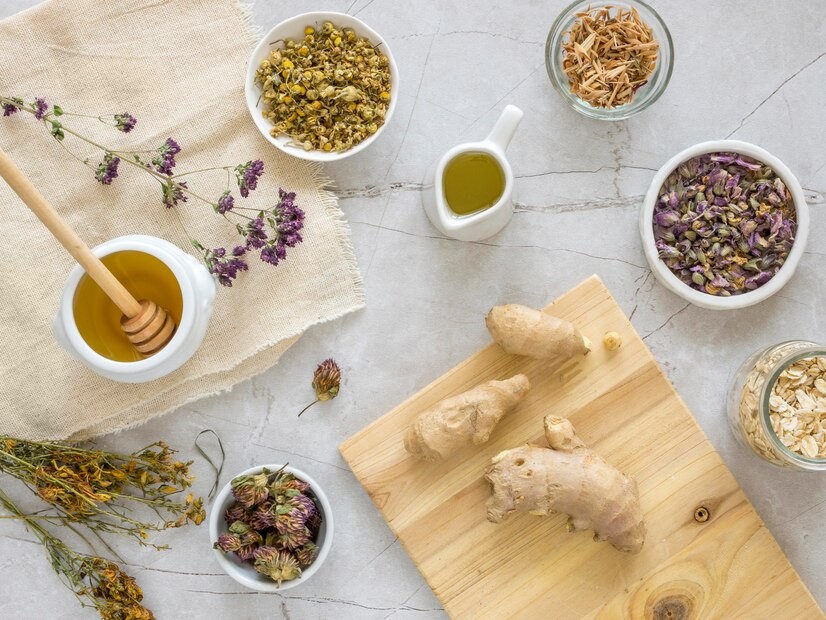Obat herbal sering dianggap pilihan yang lebih aman karena terbuat dari bahan alami. Banyak orang beranggapan bahwa karena alami, obat herbal tidak memiliki efek samping dan dapat dikonsumsi tanpa risiko.
Namun, anggapan ini tidak sepenuhnya benar. Penggunaan obat herbal tetap memerlukan kehati-hatian. Sama seperti obat sintetis, obat herbal juga dapat menimbulkan efek samping dan berinteraksi dengan obat lain.
Mengapa Perlu Hati-Hati Dalam Mengonsumsi Obat Herbal?
Ada beberapa alasan mengapa Anda perlu berhati-hati dalam mengonsumsi obat herbal, di antaranya:
Kurangnya pengawasan dan standar produksi
Salah satu masalah utama obat herbal adalah kurangnya pengawasan dan standar produksi yang ketat selama proses produksinya. Di banyak negara, termasuk Indonesia, pengaturan dan regulasi untuk produk herbal tidak seketat obat resep.
Ada kemungkinan beberapa produk mengandung bahan aktif dalam jumlah yang tidak konsisten, tercemar oleh bahan kimia berbahaya, atau mengandung zat yang tidak tertera di label. Oleh karena itu, penting untuk memastikan bahwa produk herbal yang Anda konsumsi berasal dari produsen tepercaya dan telah terdaftar di badan pengawas obat dan makanan.
Interaksi dengan obat lain
Obat herbal mungkin berinteraksi dengan obat medis lain yang sedang Anda konsumsi. Interaksi ini mungkin memengaruhi efektivitas obat atau menimbulkan efek samping yang tidak diinginkan.
Misalnya saja ginkgo biloba yang sering digunakan untuk meningkatkan daya ingat. Suplemen herbal ini jika dikonsumsi bersamaan dengan obat pengencer darah dapat meningkatkan risiko perdarahan.
Baca Juga: Pengobatan Herbal untuk Mengatasi Bau Badan
Efek samping yang tidak terduga
Meskipun terbuat dari bahan-bahan alami, obat herbal tetap mengandung zat kimia aktif yang dapat menimbulkan efek samping. Misalnya, konsumsi akar licorice yang berlebihan dapat menyebabkan peningkatan tekanan darah dan ketidakseimbangan elektrolit dalam tubuh.
Kurangnya bukti ilmiah tentang keamanan dan efektivitas
Banyak obat herbal yang populer dan dikonsumsi banyak orang ternyata belum teruji secara klinis dalam skala besar. Meskipun beberapa ramuan telah digunakan secara tradisional selama berabad-abad, bukti ilmiah yang mendukung penggunaannya sering kali masih terbatas.
Penggunaan obat herbal yang tidak didukung oleh penelitian yang memadai dapat meningkatkan risiko penggunanya, terutama bila Anda memiliki kondisi kesehatan tertentu.
Baca Juga: Rekomendasi Obat Herbal untuk Sakit Maag
Berisiko bagi kelompok tertentu
Beberapa kelompok seperti wanita hamil, ibu menyusui, anak-anak, dan orang tua mungkin lebih rentan terhadap efek samping obat herbal. Beberapa bahan aktif dalam obat herbal dapat memengaruhi perkembangan janin, mengontaminasi ASI, atau berinteraksi dengan kondisi kesehatan yang sudah ada.
Penggunaan obat herbal pada kelompok ini harus dilakukan dengan sangat hati-hati agar tidak menimbulkan efek samping yang tidak diinginkan.
Menggunakan obat herbal tetap boleh dilakukan, khususnya dalam menangani kondisi kesehatan ringan seperti pilek, masalah pencernaan ringan, stres, atau gangguan tidur. Namun, sangat penting berbicara dengan dokter sebelum menggunakan obat herbal karena beberapa obat herbal bisa berinteraksi dengan obat medis.
Memiliki pertanyaan terkait obat herbal? Anda bisa memanfaatkan layanan konsultasi kesehatan Ai Care dengan mengunduhnya melalui App Store atau Play Store.
Mau tahu tips dan trik kesehatan, pertolongan pertama, dan home remedies lainnya? Cek di sini, ya!
- dr Nadia Opmalina
John Hopkins Medicine. Herbal Medicine. Available from: https://www.hopkinsmedicine.org/health/wellness-and-prevention/herbal-medicine
Better Health Channel. Herbal medicine. Available from: https://www.betterhealth.vic.gov.au/health/conditionsandtreatments/herbal-medicine
WebMD (2022). What to Know Before You Take Herbal Supplements. Available from: https://www.webmd.com/vitamins-and-supplements/ss/slideshow-herbs-supplements-avoid
Oladimeji Ewumi (2022). What is herbal medicine, and what are the benefits?. Available from: https://www.medicalnewstoday.com/articles/herbal-medicine
Cleveland Clinic (2024). Herbal Supplements: Why To Check With a Healthcare Provider First. Available from: https://health.clevelandclinic.org/herbal-supplements-use
Gashwa Hassen, et all (2022). Clinical Implications of Herbal Supplements in Conventional Medical Practice: A US Perspective. Available from: https://pmc.ncbi.nlm.nih.gov/articles/PMC9375827/
Kelsey Costa, MS, RDN (2024). 6 popular herbal supplements linked to potential liver risks. Available from: https://www.medicalnewstoday.com/articles/6-popular-herbal-supplements-green-tea-curcumin-linked-potential-liver-risks
Mayo Clinic (2022). Herbal supplements and heart medicines may not mix. Available from: https://www.mayoclinic.org/healthy-lifestyle/consumer-health/in-depth/herbal-supplements/art-20046488
WebMD (2020). Ginkgo - Uses, Side Effects, and More. Available from: https://www.webmd.com/vitamins/ai/ingredientmono-333/ginkgo
WebMD (2020). Licorice - Uses, Side Effects, and More. Available from: https://www.webmd.com/vitamins/ai/ingredientmono-881/licorice












